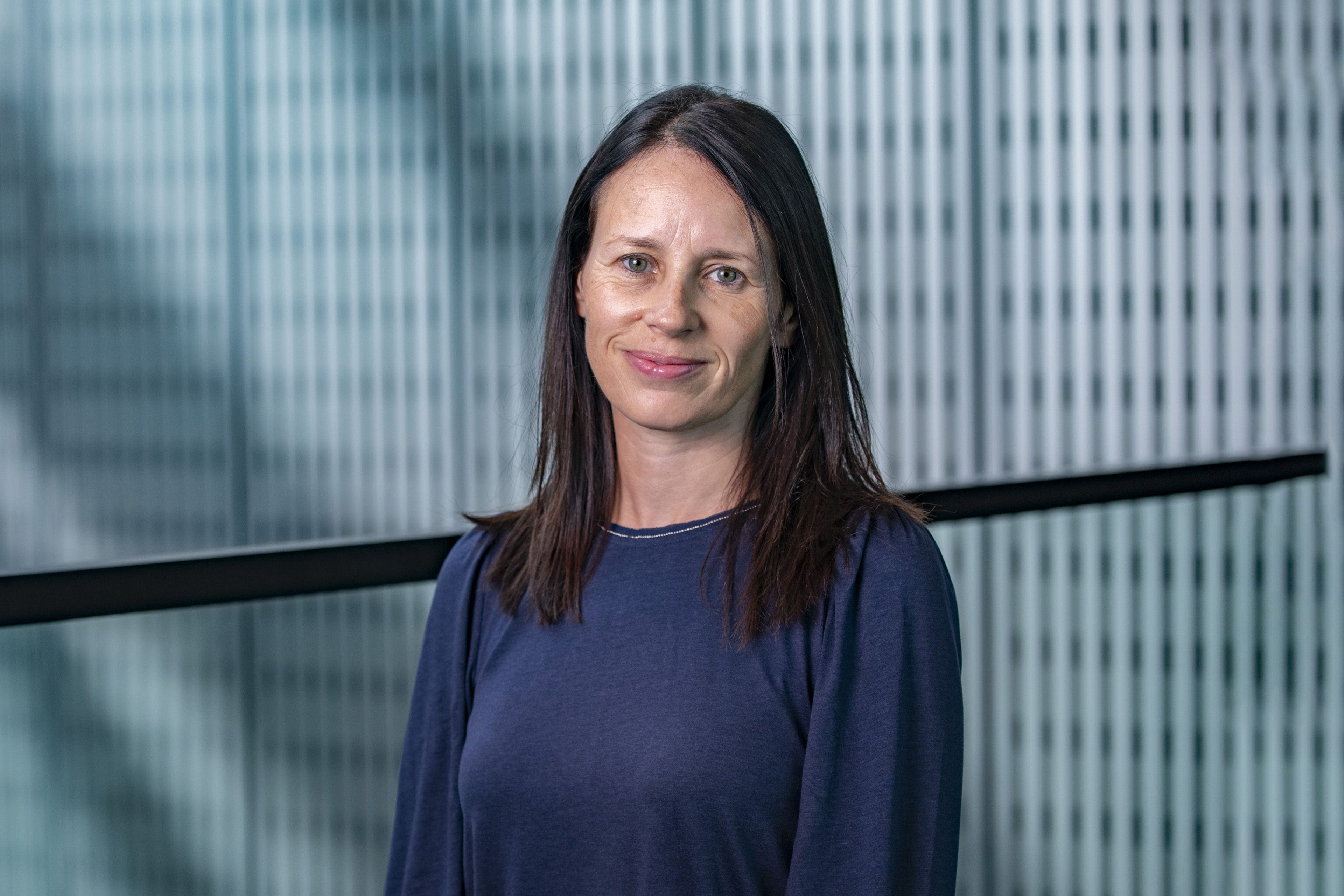EY refers to the global organization, and may refer to one or more, of the member firms of Ernst & Young Global Limited, each of which is a separate legal entity. Ernst & Young Global Limited, a UK company limited by guarantee, does not provide services to clients.
Newsroom
Media inquiries
Contact the UK Media Relations team
06 February 2026 | EY ITEM Club comments | Media contact: James White - Senior Executive, Media Relations, Ernst & Young LLP
House prices pick up in January
- House prices picked up substantially in January according to Halifax’s estimates. However, this strength is just a reversal of previous declines, with house prices only slightly better than flat over the last three months. Despite solid activity in the market over the last year, affordability challenges linger, with the average house price ticking over £300k for the first time.
- The coming year is expected to see further subdued house price growth. Slipping pay growth means that dramatic improvements in affordability should not be expected, while significant falls in interest rates are also unlikely as the Bank of England approaches the end of its current rate cutting cycle.
Matt Swannell, Chief Economic Advisor to the EY ITEM Club, said: “On the face of it, house prices made a strong start to the year according to Halifax’s estimates, but below the surface the story is more nuanced. House prices grew by 0.7% in January, but most of that strength is just the reversal of a 0.5% fall in December. Over the last three months, house prices have only increased by 0.1%. Looking past the month-to-month noise, house price growth has been quite modest over the last year, increasing by 1% across the 12 months to January. Activity in the market has remained resilient over the last year, but affordability challenges remain, with the Halifax’s average house price estimate ticking over £300k for the first time.
“Last year’s housing market was shaped by April’s change in Stamp Duty thresholds. However, housing market performance in 2026 will likely reflect wider economic conditions, with the property taxes announced at the Autumn Budget likely to have little impact. The high value council tax surcharge will only impact less than 1% of properties in England and, in any case, it will only come into effect in April 2028.
“House prices will likely rise at a subdued pace over the next twelve months. With pay growth slowing, the big improvements in housing affordability seen over the past couple of years look to be a thing of the past, and valuations are still stretched. Meanwhile, mortgage rates look unlikely to fall a lot further, with the Monetary Policy Committee (MPC) reinforcing its view that it is approaching the end of its rate cutting cycle.”
05 February 2026 | EY ITEM Club comments | Media contact: James White - Senior Executive, Media Relations, Ernst & Young LLP
Surprise votes raise the possibility of a March cut
- While today’s decision to keep Bank Rate unchanged was as expected, the extent of the support amongst the Monetary Policy Committee (MPC) for an immediate rate cut came as a surprise. From the data flow since the last meeting, it’s not immediately clear why the Committee has shifted in a dovish direction, but it appears that most members are slightly less worried about sticky pay and inflation and more concerned about the subdued growth outlook.
- There were no promises made on when the next rate cut will come, but today’s 5-4 vote clearly puts a March cut on the table. However, the MPC was keen to stress it is likely approaching the end of its cutting cycle.
Matt Swannell, Chief Economic Advisor to the EY ITEM Club, said: “Today’s decision to keep Bank Rate on hold at 3.75% was no big surprise. However, it was a much closer call than many expected, with five members voting in favour of no change and four against.
“It is not immediately clear from recent data precisely what has caused the dovish shift among the MPC. However, the latest assessments by most Committee members suggest that they’ve become less concerned about sticky wage and price pressures at the start of the year, and more focused on the subdued growth outlook and the potential downside knock-on effect for the jobs market. There appears to be growing confidence among the more dovish contingent of the MPC that a delay to ensure inflation has been managed will not be necessary. The Bank of England has revised down its 2026 growth to forecast to 0.9%, in line with the EY ITEM Club’s latest forecast.
“There were no promises made on when the Bank of England may cut rates again, but such a closely balanced vote split clearly opens the door to a rate cut at the March meeting. That will ultimately be determined by how much pay and inflation fall over the next few months, but as today’s decision shows, it’s not always easy to predict how the MPC will interpret the month-to-month changes in the data. While the timing of the next rate cut is still not pinned down, it’s much clearer that the MPC think the next move in Bank Rate will still be downwards. Nonetheless, the Committee still stressed that it was approaching the end of the cutting cycle, with future interest rate decisions becoming a closer call.”
05 February 2026 | EY ITEM Club comments | Media contact: James White - Senior Executive, Media Relations, Ernst & Young LLP
Construction PMI points to a better start to 2026
- January’s Purchasing Managers’ Index (PMI) picked up substantially, although it remained below the 50 no-change mark. The ongoing weakness in the PMI seems to paint too gloomy a picture and is more a reflection of downbeat business sentiment in the sector rather than output.
- This year will be mixed for the construction sector. Public sector capital projects and planning reform could provide a decent inflow of new work. But geopolitical uncertainty will see a pause on some private sector spending on large projects.
Matt Swannell, Chief Economic Advisor to the EY ITEM Club, said: “January’s construction PMI reported a large rise, although it remains in contractionary territory. The 46.4 recorded in January is a significant improvement on December’s five-and-a-half-year low of 40.1 and the highest reading since the middle of last year. There were still sharp contractions in the house building and civil engineering sectors, but the fall in commercial work was the smallest since last spring as respondents pointed to post-Budget optimism bringing some new spending online.
“It’s been our long-held view that the weakness in the construction PMI paints an overly pessimistic picture of the sector. Over the last year or so, the PMI has consistently been in contractionary territory, but official estimates of construction activity have pointed to a sector that has moved sideways. The PMI’s gloominess appears to reflect sentiment in the construction industry, rather than an actual shift in activity.
“This year is expected to be one of mixed fortunes for the construction sector. Planning reforms and public infrastructure projects will offer a healthy pipeline of new work. But persistent geopolitical uncertainty will likely cause the delay or cancellation of some large projects as global volatility prompts businesses to pause spending. A shortage of skills within the sector will also continue to reduce the viability of some new construction projects as businesses continue to face elevated labour costs.”
04 February 2026 | EY ITEM Club comments | Media contact: James White - Senior Executive, Media Relations, Ernst & Young LLP
January’s PMIs probably overstate the economy’s momentum
- January’s final UK services Purchasing Managers’ Index (PMI) pointed to much stronger activity growth. But results have been volatile and prone to swings in sentiment, so it is uncertain whether services momentum is as strong as the PMI suggests. GDP growth will likely be faster in Q1, but this is primarily due to temporary factors.
- The survey also reported that price pressures edged higher, while labour market conditions weakened. The Monetary Policy Committee (MPC) will almost certainly keep Bank Rate unchanged later this week, with the end-April meeting the most likely timing for the next rate cut.
Matt Swannell, Chief Economic Advisor to the EY ITEM Club, said: “January's final S&P Global survey signalled a materially stronger pace of services activity growth, with the sector's PMI rising to 54.0, up from 51.4 in December. Survey respondents also noted a sharper increase in new orders, with S&P Global suggesting that improved confidence after the Autumn Budget led to a release of delayed investment decisions. With January's earlier manufacturing survey reporting an improvement in production levels, this pushed the composite PMI up to 53.7, from 51.4 in December.
“The S&P Global survey results can be quite erratic on a monthly basis, and the relationship between the PMIs and official output growth has largely broken down in recent years. The survey typically does a better job of reflecting changes in corporate sentiment rather than genuine shifts in private sector activity. Even though the PMIs currently appear to be overstating the momentum in the economy, a combination of temporary drags on official output in Q4 unwinding and ongoing residual seasonality issues should mean that GDP growth is slightly stronger in Q1 2026 than in Q4 2025.
“Despite stronger activity, January's survey reported a further fall in employment. Meanwhile, input cost pressures moderated slightly, but businesses used this to support margins and output price inflation reached a five-month high. The MPC will almost certainly hold Bank Rate this week, with the April meeting seeming the most likely time for the next rate cut. By then, the MPC will have a clearer view of the 2026 pay awards and whether there is further evidence of slack emerging in the economy.”
02 February 2026 | EY ITEM Club comments | Media contact: James White - Senior Executive, Media Relations, Ernst & Young LLP
Manufacturing sector made a steady start to 2026
- The UK manufacturing Purchasing Managers’ Index (PMI) reported slow but steady activity growth at the start of 2026. The recent improvement in the manufacturing PMI probably reflects a shift in business sentiment rather than a true pickup in activity. This will likely be another year of modest growth for the sector.
- Rising input costs continue to be passed through the supply chain, keeping upwards pressure on the price of manufactured goods. The Monetary Policy Committee (MPC) is unlikely to make any changes to interest rates at this week’s meeting - the Committee is instead expected to wait and gauge the size of wage and price rises in the early part of this year.
Matt Swannell, Chief Economic Advisor to the EY ITEM Club, said: “January's final S&P Global manufacturing survey pointed to a gradual rise in activity, with the PMI having increased to 51.8, up from 50.6 in December - marking a third consecutive month of growth. Businesses reported that new orders continued to rise despite elevated geopolitical uncertainty. Exporters reported an improvement, while more domestically-focussed companies reported that the home market saw little change.
“The manufacturing PMI should be taken with a heavy pinch of salt. In recent years, it's been a better barometer of manufacturers' mood rather than a true indicator of changing activity. With the recent heightened uncertainty around future international trading arrangements, the latest pick up could quickly change course. It’s likely that 2026 will be another subdued year for UK manufacturers as fiscal policy continues to tighten, households' real income growth is set to slow, and international trade policy uncertainty remains elevated.
“Even with business reported to be on the up, rising costs are still causing manufacturers to reduce headcount. Rising domestic cost pressures combined with the higher cost of some raw materials are still working their way through the production line too. In response, output price inflation picked up further in January. The MPC will likely leave Bank Rate unchanged at its meeting later this week as it waits to see the extent to which a deteriorating jobs market feeds through to pay growth and inflation.”
02 February 2026 | EY ITEM Club comments | Media contact: James White - Senior Executive, Media Relations, Ernst & Young LLP
House prices start the year on a solid footing
- Across January, house prices made up some of the ground lost in December, according to Nationwide estimates. But looking back across the last twelve months, the picture of the housing market remains one of subdued growth.
- This year will likely see modest house price growth. The Bank of England is very likely to keep interest rates unchanged at its meeting this week, and it appears unlikely that there will be another cut before April, so a large fall in mortgage rates looks off the cards. Meanwhile, cooling wage growth will put a brake on the improvement in affordability observed over the last couple of years.
Matt Swannell, Chief Economic Advisor to the EY ITEM Club, said: “House prices made a steady start to the year, according to Nationwide’s latest estimates. House prices grew by 0.3% in January, making back a large chunk of December’s -0.4% fall. House price estimates can be choppy from month-to-month, but looking back over the last year as a whole, the picture remains one of modest housing market performance. House prices are estimated to have risen by 1% across the year to January - a slight rise compared to December, when year-on-year growth was 0.6%,
“The property taxes announced at the Autumn Budget are not expected to have an immediate or material effect on the housing market. The high value council tax surcharge will only impact less than 1% of properties in England and, in any case, it will only come into effect in April 2028. Instead, the housing market’s performance will reflect wider economic conditions.
“It’s likely that 2026 will be another year of modest house price growth. Over the last couple of years, strong pay growth and relatively small rises in property prices have seen the affordability of housing improve, but that looks to have passed now with earnings growth slowing in a deteriorating jobs market. Meanwhile, significant falls in mortgage rates look unlikely as the Monetary Policy Committee (MPC) is expected to keep interest rates unchanged until its late-April meeting.”
30 January 2026 | EY ITEM Club comments | Media contact: James White - Senior Executive, Media Relations, Ernst & Young LLP
Surprise fall in December mortgage approvals
- December's fall in UK mortgage approvals was larger than expected, but the softer outturn should be taken with a pinch of salt. December typically sees low levels of activity and the data often requires large seasonal adjustments. Mortgage affordability has recovered in recent years, and this should support similar levels of approvals to those seen before the pandemic.
- Net unsecured lending fell in December due to higher repayments. With real income growth now slowing sharply, it will be another challenging year for UK consumers. But sentiment continues to firm, and there's plenty of room for households to save less. These factors will mitigate the impact of weaker income growth this year.
Matt Swannell, Chief Economic Advisor to the EY ITEM Club, said: “Mortgage demand was surprisingly weak in December, with approvals for new home purchases slipping to 61,013, down from 64,072 in November. But given December typically sees low levels of activity and large seasonal adjustments are applied, the soft outturn should be interpreted with caution. Net mortgage lending was unchanged at £4.6bn in December, after falls in gross lending and repayments.
“Approvals remain well above the 55,000 monthly average of 2023-2024, with lending flows similarly stronger. The market's firmer footing comes after a period where stronger wage growth and falling mortgage rates helped to drive a recovery in mortgage affordability. The big improvements in affordability have now likely passed given pay growth is slowing and financial markets already anticipate further cuts to Bank Rate, suggesting there's little scope for swap rates and mortgage rates to fall much further from current levels. In 2026, mortgage activity is expected to stabilise at levels similar to those seen before the pandemic.
“Net unsecured lending fell to £1.5bn in December, down from £2.1bn a month earlier. The decline was driven by a rise in repayments, with gross lending unchanged. Real household income growth is cooling abruptly, but consumer sentiment has been steadily firming, and there's scope for households to mitigate the impact of weaker income growth by saving less. These conditions should help to offset weaker real income growth and keep consumer spending growth at around 1% this year.”
30 January 2026 | EY ITEM Club comments | Media contact: James White - Senior Executive, Media Relations, Ernst & Young LLP
MPC in wait and see mode as all eyes on pay deals
- Holding Bank Rate at 3.75% looks like a done deal at the Bank of England’s February meeting. Seven of the nine Monetary Policy Committee (MPC) members are expected to vote in favour of no change, with two preferring another 25bps cut.
- Concerns around the strength of 2026 pay awards will keep most of the MPC on a watching brief as its monitors how another year of above-target inflation feeds through to wage rises. While it waits for further information, the MPC is unlikely to commit to the timing or extent of further cuts. We expect the next cut to come at the Bank of England’s late-April meeting.
Matt Swannell, Chief Economic Advisor to the EY ITEM Club, said: “Keeping Bank Rate unchanged at 3.75% at next week’s meeting looks a near-certainty. Some of the MPC doves that favoured a cut in December still harbour some concerns around sticky wage growth and inflation. Although the data over the last few weeks has tilted in a slightly dovish direction, this does not appear to be anywhere near enough to prompt a majority of the MPC to favour back-to-back cuts. Seven of nine rate setters seem likely to favour keeping Bank Rate unchanged, with two preferring to lower interest rates by 25bps.
“On the one hand, a re-emergence of labour market slack and cooling pay growth will have slightly reduced the risk of sticky inflation in the view of some members of the Commitee. The deterioration in the jobs market has re-accelerated in recent months after appearing to have bottomed out over the summer, while official estimates of wage growth have cooled more quickly than the Bank of England forecast three months ago. On the other hand, most rate setters are still wary of 2026 pay settlements, which early indicators suggest will be above target-consistent rates. The Bank of England’s survey of corporate decision-makers suggests this year’s pay rises will be 3.7% and intelligence gained from its regional Agents’ network point to an average pay settlement of 3.5%. Given most members of the MPC will still have concerns that elevated earnings growth will keep inflation above target, the Committee will probably wait and see how the early year settlement season plays out before adjusting rates further.
“The MPC is maintaining a watching brief and probably won’t offer any explicit guidance that commits to the timing and extent of future rate cuts. However, the MPC is likely to indicate that Bank Rate is approaching a neutral setting and that the cutting cycle is approaching an end. Its near-term inflation forecast will likely to fall to 2% in the middle of this year as the cost-of-living measures announced at the Autumn Budget come into effect. But its inflation projection could still settle around the 2% target in two to three years’ time, indicating that in the MPC’s view, one or two carefully judged cuts may still be delivered.”
27 Nov 2025 | EY comments - Autumn Budget 2025
Budget 2025: EY comments on electric vehicles following the Autumn Budget
Maria Bengtsson, EY UK&I Mobility Leader, comments on electric vehicles following the Chancellor’s Autumn Budget: “While it’s positive that the rate of tax per mile for EV drivers will remain significantly lower than the effective rate for petrol and diesel drivers, this still represents a new additional cost for EV owners, and therefore a potential barrier to demand. That said, the additional £1.3bn of funding towards the Electric Car Grant should help offset some of the downside impact, making the EV transition more affordable for more households.
“The announcement of £200m in further funding towards the rollout of EV chargers across the country, as well as a 100% business relief rate for businesses with EV charging points are also encouraging steps to support the UK’s EV transition. The threshold for the expensive car supplement rising to £50,000 for electric vehicles, up from £40,000, may also make EVs more attractive to buy.
“Further announcements in relation to the automotive sector included a delay to the expected changes to employee car ownership schemes. These changes will now be implemented in 2030, with a two-year transition period. Details are still to be confirmed, but this delay will be positive news for many auto manufacturers and dealers who often use these schemes to help support demand for ‘nearly new’ used cars.”
Media contacts:
Justin Moll - Manager, Media Relations, Ernst & Young LLP
Rob Joyce - Senior Manager, Media Relations, Ernst & Young LLP
27 Nov 2025 | EY comments - Autumn Budget 2025
Mike Grayton, EY Partner comments on the impact of the Budget on the Consumer Products and Life Sciences sector:
Consumer Products:
“Changes to the Soft Drinks Industry Levy may increase reformulation costs for some in the sector which could lead to price increases for consumers already facing higher costs and reduced spending power. The proposed tiered business rates system will benefit smaller businesses, although high-value properties will be more adversely impacted which could lead to pricing pressure. One area of optimism is the reference to increased R&D funding in coming years, and the potential for increased support for energy costs for manufacturing activities.”
Life Sciences sector:
“Support for advanced assurance on small and medium-sized R&D claims, along with previously announced initiatives under the Industrial Strategy, including the Life Sciences Innovative Manufacturing Fund, and the Global Talent Visa programme will be welcome news to the life sciences sector, however, many businesses will have been hoping for more. Rising costs from business rates on high value properties and increased employment expenses will increase costs and some in the sector will have been hoping more targeted measures to support companies.”
Media contacts:
Justin Moll - Manager, Media Relations, Ernst & Young LLP
Rob Joyce - Senior Manager, Media Relations, Ernst & Young LLP
26 Nov 2025 | EY comments - Autumn Budget 2025
Budget 2025: EY comments on Business Rate Multipliers following the Autumn Budget
Russell Gardner, EY UK Head of Real Estate, Hospitality and Construction, comments on Business Rate Multipliers: “The Budget included a series of adjustments that will affect the real estate market to varying degrees. Commitments to increase planning officer recruitment should help to accelerate decisions at a local level and move projects from concept to construction more quickly, while the release of the new Business Rate Multipliers will have the greatest near-term impact on the UK property market.
"Business rate reform had been mooted as a way to shift the tax burden away from bricks and mortar retail, hospitality and leisure businesses and towards ecommerce logistics hubs and data centres, levelling the playing field between the high street and digital companies. While wholesale reform remains on the horizon, these new multipliers will mean that properties with a rateable value of more than £500,000 will carry a greater proportion of the rates burden, with office and industrial properties in London and the South East expected to bear the brunt of these higher costs.
“However, until the updated rateable values have been released, it remains unclear how much of the burden will shift towards those 21,000 commercial properties across the UK thought to have a rateable value of above £500,000. With the OBR indicating that the 2025/26 tax take from business rates is set to rise by 5% on the year before, the Government may prefer to bank the increased tax receipts before making more radical changes.”
Media contacts
Justin Moll - Manager, Media Relations, Ernst & Young LLP
Rob Joyce - Senior Manager, Media Relations, Ernst & Young LLP
26 Nov 2025 | EY comments - Autumn Budget 2025
Budget 2025: EY comments on the changes to VAT treatment of charitable donations at the Autumn Budget
Carolyn Norfolk, Indirect Tax Partner at EY, comments on the changes to VAT treatment of charitable donations announced at the Chancellor’s Autumn Budget: “Following a consultation earlier this year, the Government has confirmed that it will remove the charge to VAT where businesses make charitable donations, removing a significant barrier to companies seeking to donate goods. Previously, it could be more cost effective to scrap goods rather than donate them.
"Addressing this anomaly will not only help with the cost-of-living crisis but also support the environmental agenda by reducing wastage. To further the Government’s digital inclusion aims, there is a higher limit for digital assets. However, the relief does not extend to community interest companies (CICs) and social enterprises, a gap that could benefit from being plugged in future.”
Media contacts
Justin Moll - Manager, Media Relations, Ernst & Young LLP
Rob Joyce - Senior Manager, Media Relations, Ernst & Young LLP
26 Nov 2025 | EY comments - Autumn Budget 2025
Katie Selvey-Clinton, Capital Allowances Tax Partner at EY, comments on changes to capital allowances announced in the Chancellor’s Autumn Budget:
“One of the Budget’s largest revenue-raising business measures is the reduction in the capital allowances rate on plant and machinery, forecast to generate £7bn in cash flow over the next five years. Whilst most new assets benefit from generous 100% full expensing allowances, this new measure erodes the tax relief available for older assets and second-hand purchases, which are specifically excluded.
“Limiting incentives to new assets restricts the relevance for second hand transactional markets such as infrastructure and real estate, and doesn’t reflect the desire to reuse and recycle. The new 14% rate means it will now take over 16 years before the asset is fully written off.”
Media contacts
Justin Moll - Manager, Media Relations, Ernst & Young LLP
Rob Joyce - Senior Manager, Media Relations, Ernst & Young LLP
26 Nov 2025 | EY comments - Autumn Budget 2025
Chris Taylor, EY Indirect Tax Transformation Partner and E-invoicing Lead, comments on e-invoicing measures announced in the Chancellor’s Autumn Budget:
“The announcement on e-invoicing in today’s Budget, requiring all VAT invoices to be issued in a specified electronic format from April 2029, is a significant step forward and provides certainty for businesses in terms of timeframe. It also aligns the UK with a number of other markets across Europe who are going live with e-invoicing legislation in 2026.
“The Government has explicitly recognised the important role e-invoicing will play in supporting HMRC’s digitalisation goals over the coming years, as well as its ability to reduce the VAT gap. The announcement follows an initial consultation earlier this year and shows that HMRC is continuing to see the progress and benefits of e-invoicing in other major economic markets. Whilst not meeting Malaysia’s implementation record of two years, HMRC’s timelines align to those of other major markets who typically move from initial consultation to formal legislation in between three and five years.
“An implementation roadmap is expected to be published at Budget 2026 and businesses will need to be ready to engage to ensure that there is as little disruption as possible.”
Media contacts
Justin Moll - Manager, Media Relations, Ernst & Young LLP
Rob Joyce - Senior Manager, Media Relations, Ernst & Young LLP
26 Nov 2025 | EY comments - Autumn Budget 2025
Andrew Ogram, Energy Tax Partner at EY, comments on energy measures announced in the Chancellor’s Autumn Budget:
“This Budget’s energy measures shift more of the costs to decarbonise the economy from energy bills onto general taxation while layering in new, targeted charges.
“Moving some levies off electricity bills and expanding the Warm Home Discount to all households on means-tested benefits will be felt most directly by low-income consumers and by electricity-intensive businesses that benefit from slightly lower unit power costs. General taxpayers will increasingly underwrite policy costs that were previously recovered through tariffs, while the Sizewell C Regulated Asset Base Levy and other charges mean that part of the cost to decarbonise will still be visible on electricity bills, particularly for larger commercial users.
“For investors, changes to the structure of certain levies should deliver more bankable long-term cash flows for new nuclear and other low-carbon projects, but concerns will remain about UK industrial power prices and their impact on UK competitiveness relative to peer economies.
“In the North Sea, the lack of substantive reform to the Energy Profits Levy will disappoint industry hopes for an early withdrawal before March 2030. Following consultation, the Government has announced its intention to introduce what is essentially a tiered royalty when the EPL ends. Overall, the UK remains one of the most complex and uncertain upstream tax regimes among mature basins.
“Taken together, the package nudges the UK towards cheaper low-carbon electricity but highlights the trade-offs between lower bills in the short-term, the need to raise revenue in the long-term and the stability of the investment environment for both low-carbon and conventional energy projects.”
Media contacts
Justin Moll - Manager, Media Relations, Ernst & Young LLP
Rob Joyce - Senior Manager, Media Relations, Ernst & Young LLP
26 Nov 2025 | EY comments - Autumn Budget 2025
Budget 2025: EY comments on the industrial impact of the Autumn Budget
“This Budget’s energy measures shift more of the costs to decarbonise the economy from energy bills onto general taxation while layering in new, targeted charges.
Mark Minihane, UK&I Industrials and Energy Tax Leader for EY, comments on the industrial implications of the Chancellor’s Autumn Budget: “Renewed support for decarbonisation, renewable energy projects, grid upgrades and digital infrastructure will have been on the Budget wish lists of many industrials and energy businesses. Industry groups have called for measures to lower energy costs, expand competitiveness schemes and introduce targeted incentives for electrification and clean energy investment. While today’s announcements present opportunities for businesses investing in efficiency, sustainability, and advanced technologies, there remain rising costs and regulatory risks for energy-intensive or carbon-heavy operations.
“When it comes to modernising UK industry and accelerating the transition to net zero, stability and clarity around reliefs will be crucial to giving companies the confidence to commit to long-term capital projects. On this front, collaborative research and development (R&D) cash grants of up to £20-50m depending on project size and scope, and the pledge of an additional £1.5bn to extend the DRIVE35 programme to back the automotive sector, will provide crucial support. However, UK industry continues to navigate complex challenges and may require further targeted measures to build on these advances.”
Media contacts
Justin Moll - Manager, Media Relations, Ernst & Young LLP
Rob Joyce - Senior Manager, Media Relations, Ernst & Young LLP
26 Nov 2025 | EY comments - Autumn Budget 2025
Chris Sanger, UK Tax Policy Leader at EY, comments on measures announced in the Chancellor’s Autumn Budget:
“The Chancellor delivered on the speculation of a “smorgasbord” of measures, with 44 tax measures raising a net £26.6bn per annum by 2030-31. The benefit of a smorgasbord is that the diner can choose their dishes, but the Budget was more of a stew, serving up all the measures together in one meal.
“The ‘meat’ of the Budget was the threshold freezes, the increase in employment and savings taxes, the new council tax surcharge and the mileage charge on EVs. In terms of sweeteners, there was the usual freeze in fuel duty and an extension of the Enterprise Management Incentives. More neutral were the changes to allowances for capital investment by businesses, with a new first year allowance but reductions in allowances for the subsequent years.
“Overall, the Chancellor delivered a Budget that raised less in taxes than last year and maintained the Government’s manifesto commitments, making it as palatable as could be expected for a revenue raising Budget. The Treasury Red Book ran to 146 pages but, with the Finance Bill due out next week, there is plenty of detail still to come.”
Media contacts
Justin Moll - Manager, Media Relations, Ernst & Young LLP
Rob Joyce - Senior Manager, Media Relations, Ernst & Young LLP
26 Nov 2025 | EY comments - Autumn Budget 2025
Budget 2025: EY comments on the economic impact of the Autumn Budget
Peter Arnold, EY UK Chief Economist, comments on the economic implications of the Chancellor’s Autumn Budget:
“Pre-Budget speculation around the need for up to £40bn of tax rises proved slightly off the mark. Although the Office for Budget Responsibility (OBR) downgraded its growth forecast for the UK economy post-2026, stronger nominal wage growth is expected to lead to a more tax-rich economy than previously expected, even before the announced revenue-raising measures. The Chancellor was therefore able to increase taxes by a more modest £26bn, with freezes to income tax thresholds doing much of the heavy lifting – equivalent to about 60% of the total. This has more than doubled the Chancellor’s headroom against her fiscal rules to £22bn, even when combined with an £8bn increase in spending.
“This additional headroom could reassure bond markets on the sustainability of the UK’s finances, which in turn could bring down debt interest payments. Further, a number of measures taken by the Chancellor, particularly in lowering energy prices for domestic and business users, will be disinflationary, reducing inflation by 0.5% in 2026. This could open a pathway to quicker and more substantial rate cuts from the Bank of England.
“However, the profile of the changes in taxation and spending represent a risk, given increasing spending is front-ended, while tax rises are back-ended, which could be challenging to deliver in the lead up to a General Election. The Chancellor will also likely be disappointed that the OBR did not include any positive adjustments to its forecasts from the trade deals with India and the EU, nor from any of the Budget’s pro-growth measures such as the Youth Guarantee, the Growth and Skills Levy and wider skills and employment support packages, which together are worth around £1.5bn across the Spending Review period.”
Media contacts
Justin Moll - Manager, Media Relations, Ernst & Young LLP
Rob Joyce - Senior Manager, Media Relations, Ernst & Young LLP
26 Nov 2025 | EY comments - Autumn Budget 2025
Sarah Farrow, UK Private Client Services Partner at EY, said:
“Today the Chancellor chose to increase the tax on savings, both through two percentage point increases in the tax rates on property, savings and dividends, and restricting relief for cash ISAs. Given the exemptions for small amounts of saving income, this may fit with raising taxes from those with the broadest shoulders, but could act as a further deterrent for passive investment.
“Beyond the £2.3bn hit on savings, the Chancellor also restricted NICs relief for salary sacrifice pension contributions and froze Income Tax thresholds, netting £15bn combined. These changes will begin to impact people’s pay packets from 2029, perhaps leading to the disinflation that the Chancellor was looking for.
“The Government has reiterated its ambitions to make the UK more attractive for entrepreneurs, skilled professionals and investors. These individuals will have been anticipating today’s Budget with keen interest and, with measures now unveiled, transparency and stability, coupled with a clear focus on growth, will remain essential in enabling them to plan ahead and support future investment decisions. This will also ensure the UK continues to attract and retain investors, founders and entrepreneurs.”
Media contacts
Justin Moll - Manager, Media Relations, Ernst & Young LLP
Rob Joyce - Senior Manager, Media Relations, Ernst & Young LLP
26 Nov 2025 | EY comments - Autumn Budget 2025
Laura Mair, EY UK&I Managing Partner for Tax and Law, comments on changes for business announced in the Chancellor’s Autumn Budget:
"The Chancellor announced a package of measures aimed at raising revenue but also driving up productivity, investing in key infrastructure and building business and investor confidence, all critical components for economic growth. Holding business tax rates steady provides welcomed certainty and allows businesses to focus on job creation and growth.
"Many companies will likely feel relief that this Budget avoided mirroring the raft of business taxes announced last Autumn, with much of the focus instead on revenue-raising measures targeted at individuals and some targeted adjustments for companies. Cutting low-value import relief should provide a competitive advantage to the UK high street, while proposals to reduce energy bills could offer valuable support to eligible firms in high-growth sectors like automotive and aerospace. Although the restriction of NICs relief for pension contributions given under salary sacrifice and the reduction in the main rate of capital allowances will add to company costs over time, and personal taxes may present challenges for consumer-facing sectors reliant on discretionary spending, this was a relatively quiet Budget for business.
"Nevertheless, businesses continue to shoulder a substantial amount of the UK's overall tax take and face elevated labour costs. Delivering on the Government's priority growth mission will clearly require further measures designed to support business activity and investment, particularly across key sectors identified in the Industrial Strategy. EY data shows that the UK remains one of Europe's leading destinations for inward investment in high-growth sectors like financial services, digital technology and life sciences. Businesses will be hoping that the last two Budgets provide sufficient fiscal headroom to fuel future incentives aimed at attracting more capital into these strategically important industries."
Media contacts
Justin Moll - Manager, Media Relations, Ernst & Young LLP
Rob Joyce - Senior Manager, Media Relations, Ernst & Young LLP
26 Nov 2025 | EY comments - Autumn Budget 2025
Paul Kitson, EY Pensions Consulting Leader said:
“The Chancellor’s decision to place a £2,000 cap on salary sacrifice pension contributions from 2029 is another material cost to businesses, who were already hit by the increase in employer National Insurance introduced earlier this year. Significantly, this decision will also likely impact workers, effectively reducing the value of their pension pots, when worries around having adequate funds for retirement are already high.
“While fiscal challenges may need to be addressed and the Chancellor has steered clear of more significant limits (e.g. removing the NI exemption entirely), this is still a challenging policy change for businesses. While the change won’t come into effect until 2029, in practice, it may be difficult to administer, and significant time will need to be spent by businesses working out the operations, which may counteract the benefit the Treasury hopes to achieve. The measure could also have longer-term implications, by risking the attractiveness of pension savings at a time when this should be being actively encouraged.”
Media contacts
Victoria Luttig - Manager, Media Relations, Ernst & Young LLP
26 Nov 2025 | EY comments - Autumn Budget 2025
James Guthrie, EY Financial Services Tax Partner, comments on ISA reform announced in the Chancellor’s Autumn Budget:
“The Chancellor’s decision to reduce the annual allowance in Cash ISAs from £20,000 to £12,000 for under 65s has been prompted, at least in part, by a desire to encourage greater flows of investment from cash into higher-growth investments like stocks and shares to ultimately boost the UK stock market and economy and drive greater returns for savers. This will likely bring a mixed reaction from individuals and businesses.
“While promoting informed investment decisions and supporting UK businesses is a plus, a consumer shift into stock market investment is certainly not automatic. Demand for cash ISAs has been rising, as more risk-averse savers and those with short-term plans for their savings, for example for property, often see them as a safe home for their money. These individuals may not want to switch a sizeable portion of their funds into stock market shares. Ultimately, this move could result in people saving less.
“Equally, for banks who leverage cash ISAs as funds for household and business loans, this decision could create challenges, potentially leading to higher interest rates, stricter lending criteria and reduced access to capital for firms.”
Media contacts
Victoria Luttig - Manager, Media Relations, Ernst & Young LLP
26 Nov 2025 | EY comments - Autumn Budget 2025
Andrew Pilgrim, EY UK Government and Financial Services Leader, comments:
Chancellor announced a package of measures which aim to drive business and investor confidence, and UK economic growth. There had previously been some talk around potential changes to the banking tax rates, however the decision to hold these steady provides welcome clarity and certainty.
“While UK banks will continue to pay a higher tax contribution compared to other sectors and indeed other nations, the lack of increase is a small but reassuring sign that the Government is listening to the concerns of the sector. With the Budget now behind us, UK banking and wider financial services leaders will look to continue working effectively with Government to drive forward efforts to embrace emerging technologies, support job creation and ultimately ensure the UK remains a globally competitive place for financial firms to invest and do business.”
Media contacts
Victoria Luttig - Manager, Media Relations, Ernst & Young LLP
26 Nov 2025 | EY comments - Autumn Budget 2025
Silvia Rindone, EY UK&I Retail Lead, comments on retail sector measures announced in today’s Autumn Statement
"Today’s Budget announcement introduced measures that will impact the retail landscape and influence consumer behaviour for years to come. The proposed tiered business rates system offers welcome relief for smaller retailers, helping to ease cost pressures at a time when margins are tight. However, the additional burden placed on larger operators could lead to more expensive food bills for consumers – further challenging high street vitality and consumer choice.
“Consumer confidence has deteriorated sharply in the last 12 months, and persistent inflationary pressures and rising living costs mean sentiment has remained fragile.
“Closing the import duty loophole for small parcels is a positive step towards fairer competition, but it could also push up online prices, prompting consumers to reassess buying habits. For premium retailers, concerns will centre on whether higher taxes erode the spending power of their core customer base.
“While some measures will level the playing field for domestic retailers, the cumulative effect of tax changes and cost adjustments could temper spending, particularly in non-essential categories. Retailers will need to adapt quickly, prioritising value-driven propositions and omnichannel strategies to maintain engagement in an environment where affordability and trust will drive purchasing decisions.”
Media contacts
Justin Moll - Manager, Media Relations, Ernst & Young LLP
Chris Brown - Manager, Media Relations, Ernst & Young LLP
-
 Rosanna LanderUK&I Head of Public Relations and External Affairs, Ernst & Young LLP
Rosanna LanderUK&I Head of Public Relations and External Affairs, Ernst & Young LLP -
 James CoyleDirector, External Communications, Ernst & Young LLP
James CoyleDirector, External Communications, Ernst & Young LLP -
 Sarah GrahamEY Global Financial Services Strategic Programs Leader
Sarah GrahamEY Global Financial Services Strategic Programs Leader -
 Seetle DoolSenior Manager, Media Relations, Ernst & Young LLP
Seetle DoolSenior Manager, Media Relations, Ernst & Young LLP -
 Victoria LuttigManager, Media Relations, Ernst & Young LLP
Victoria LuttigManager, Media Relations, Ernst & Young LLP -
 Justin MollManager, Media Relations, Ernst & Young LLP
Justin MollManager, Media Relations, Ernst & Young LLP -
 Rob JoyceSenior Manager, Media Relations, Ernst & Young LLP
Rob JoyceSenior Manager, Media Relations, Ernst & Young LLP -
 Gigi O’BrienEY Global Media Relations and Social Media Manager
Gigi O’BrienEY Global Media Relations and Social Media Manager -
 Chris BrownManager, Media Relations, Ernst & Young LLP
Chris BrownManager, Media Relations, Ernst & Young LLP -
 James WhiteSenior Executive, Media Relations, Ernst & Young LLP
James WhiteSenior Executive, Media Relations, Ernst & Young LLP


